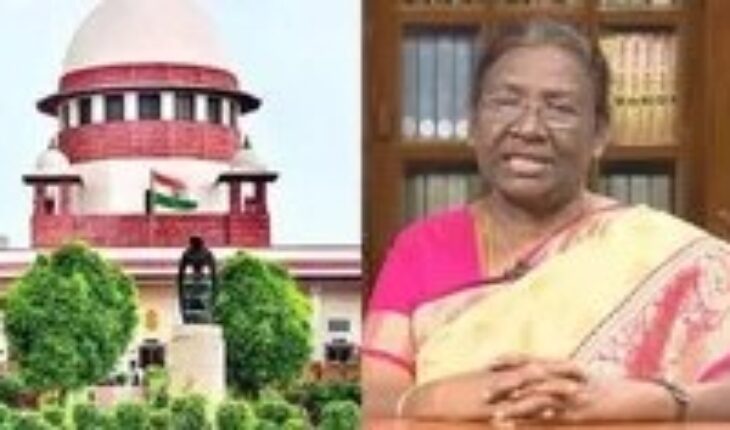In a pivotal ruling, the Supreme Court determined that the President does not possess the authority of an absolute veto. This landmark decision pertains to legislation approved by state legislatures. The court has set a three-month timeframe for the President to render a decision on the issue. Furthermore, the Supreme Court emphasized that if there is a delay beyond this stipulated period, justifiable reasons must be presented, and the relevant state should be duly notified.
The Supreme Court has established a three-month timeframe for the President to make decisions on bills passed by state legislatures for the first time. This ruling pertains to a case involving the Governor of Tamil Nadu, R.N. Ravi. The court declared the actions of Governor R.N. Ravi as unlawful and erroneous.
The bench stated in its 415-page ruling, “The President is not an exception to this default rule that permeates our entire Constitution. Such unchecked powers cannot reside in any of these constitutional positions.” Justice Pardiwala, who authored the decision on behalf of the bench, remarked that any delay by the President in making a decision regarding the reference under Article 201, without justification or necessity, would contravene the fundamental constitutional principle that the exercise of power should not be arbitrary or capricious.
In November 2023, Governor R.N. Ravi submitted ten bills to the President for consideration, despite the fact that the state assembly had already reviewed them. The bench, comprising Justice J.B. Pardiwala and Justice R. Mahadevan, stated that the governor does not possess the authority to exercise a ‘full veto’ on any bill, adding, “We see no reason why the same standard should not apply to the president under Article 201.”
The Supreme Court elaborated on the characteristics of Article 201 that have historically led to disputes in the relationship between the center and the states. The bench stated that there is no specified timeframe for the President to announce approval or disapproval of a bill after it has been reserved for consideration by the Governor under Article 201. The bench remarked, “There is no obligation on the President to necessarily approve a bill under Article 201. If the governor, exercising discretion, reserves a bill for the president’s consideration, it would render the passage of that bill by the state assembly meaningless, especially if the president keeps the bill pending or refuses to grant approval”.
The document dated April 4, 2016, outlines the significant developments in the field of research and innovation. It emphasizes the importance of collaboration among various stakeholders to enhance the effectiveness of initiatives aimed at fostering growth and advancement in this sector. The report states, “The integration of diverse perspectives and expertise is crucial for driving innovation forward. It is essential that all parties involved work together to create a conducive environment that supports the exchange of ideas and resources.” Furthermore, it highlights that “the commitment to continuous improvement and adaptation is vital for maintaining relevance in an ever-evolving landscape. Stakeholders must remain proactive in identifying opportunities for collaboration and innovation to ensure sustained progress.” In conclusion, the document underscores the necessity of a unified approach to research and innovation, advocating for ongoing dialogue and partnership among all involved entities to achieve shared goals and objectives.



